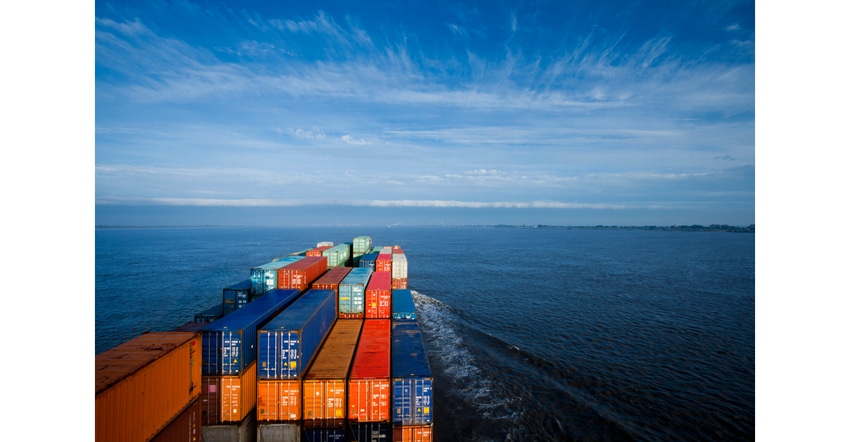Nestlé Works on Lower-Carbon Shipping Alternatives
The CPG company is reducing the impact of its logistics services as part of its path to net zero.

Nestlé has plans to move the equivalent of half of its global shipping needs to alternative, lower-emission fuels with immediate effect and is working with three of the world's largest shipping companies: Hapag-Lloyd Switzerland, A.P. Moller - Maersk, and CMA CGM.
By switching to cargo ships that use fuels made from waste, such as used cooking oil, the company aims to reduce its annual greenhouse gas emissions from shipping by around 200 000 metric tons of CO2 equivalent. This could help avoid the use of around 500 000 barrels of crude oil for ocean transportation.
"Reaching net zero requires changing many aspects of how we source, make, and distribute our products," said Stephanie Hart, executive vice president and head of operations at Nestlé. "The agreements we've signed with our shipping partners will help us cut emissions and immediately reduce our carbon footprint. We know this is an interim solution and continue to encourage the development of longer term decarbonization solutions in shipping and distribution."
Shipping makes up a small proportion of Nestlé's overall carbon footprint, yet the company is committed to reducing the impact of its logistics services as part of its path to net zero.
According to the information provided by the shipping companies, fuels made from waste offer a reduction of at least 70% in equivalent emissions compared with standard options.
The agreements signed with Hapag-Lloyd, Maersk, and CMA CGM cover half of Nestlé's shipping volumes moved in 2023, with an option to extend this agreement into 2024 and beyond. It means that the shipping companies will use alternative fuels to move an equivalent amount of tonnage in their operations this year.
All three shipping companies are excited to work with Nestlé on this venture.
"Nestlé is a key customer of Hapag-Lloyd, and through this collaboration, we are significantly reducing CO2e emissions," said Thorben Nibbe, country manager at Hapag-Lloyd Switzerland.
Johan Sigsgaard, executive vice president and chief product officer, Ocean of A.P. Moller - Maersk, added, "This is a very decisive step by Nestlé to use our very low GHG emission solution for 100% of their ocean cargo with Maersk."
"We are very proud and happy to have set this agreement with Nestlé, one of the first of its kind, whereby shippers and beneficial cargo owners (BCO) commit to decarbonize the globality of the scope 3 shipping emissions," remarked Christine CABAU -EVP, Group Assets and Operations with CMA CGM. "This initiative proves that there are some existing solutions to decarbonize scope 3 of BCOs."
About the Author(s)
You May Also Like




